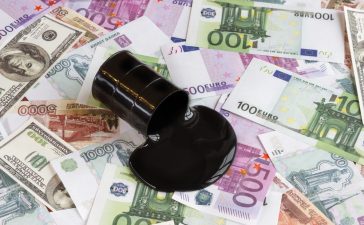MSCI’s broadest index of Asia-Pacific shares advanced 0.27%, Chinese blue chips gained 0.36%, Hang Seng flipped to a 0.46% gain, Australia’s benchmark added 0.65%, Kospi jumped 1.38%
Asian stock markets were mostly higher on Thursday while bond yields extended their decline as investors weighed risks of a Ukraine invasion against signs that the U.S. Federal Reserve won’t be as aggressive as feared in tightening policy.
MSCI’s broadest index of Asia-Pacific shares advanced 0.27%, capped by declines in Japanese stocks, with the Nikkei tumbling 0.29% on persistent worries that Russia could invade Ukraine.
MSCI’s equivalent regional index that removes Japan added 0.64%.
Chinese blue chips gained 0.36%, reversing an earlier loss. Hong Kong’s Hang Seng flipped to a 0.46% gain.
Australia’s benchmark added 0.65% as higher metals prices outweighed geopolitical concerns. South Korea’s Kospi jumped 1.38%.
U.S. S&P 500 futures dropped 0.07%.
Markets remain on edge after Western countries including the U.S. warned on Wednesday that Russia’s military presence on Ukraine’s borders was growing, rather than shrinking as Moscow has insisted.
At the same time, worries about a super-hawkish Fed rate-tightening campaign, potentially including a 50 basis-point hike next month, took a step down overnight after minutes of the latest policy meeting signalled a more measured, data-dependent approach from central bank officials.
The less hawkish Fed minutes are a positive sign that markets can re-adjust after previously pricing in aggressive rate hikes, said Trinh Nguyen, a senior economist at Natixis.
Money markets see about 43% odds of a half-point hike on March 16, and about 150 basis points of tightening in total this year.
U.S. Treasury yields continued their retreat in Asia on Thursday, with the 10-year yield easing about 2 basis points to 2.03%, pressured both by bets for a less hawkish Fed and demand for safe haven assets amid Ukraine uncertainty.





